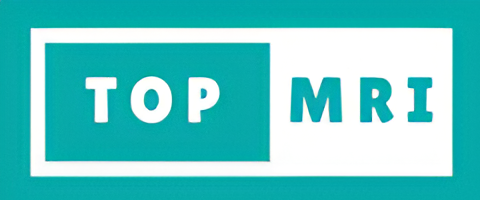
- Home
- Services
- Locations
- MRI Scan
- Greater London Area
- London – Marylebone, W1G 7HE – 3.0 T MRI Scan – £300
- London – Harley Street, W1U 2HX – Open MRI Scan – £500
- Middlesex – Enfield, EN2 8JL – 1.5 T MRI Scan – £300
- West Middlesex – Isleworth, TW7 6AF – 1.5 T MRI Scan – £300
- Surrey – Epsom, KT18 7LX – 1.5 T MRI Scan – £300
- Surrey – Ashford, TW13 3AA – 1.5 T MRI Scan – £300
- Surrey – Guildford, GU2 7XU – 3.0 T MRI Scan – £300
- Kent – Sidcup, Bexley, DA14 6LT – 1.5 T MRI Scan – £300
- North West England
- Manchester – M80 4AN – Open MRI Scan – £500
- Greater Manchester – Manchester, SK8 7NB – 1.5 T MRI Scan – £279
- Greater Manchester – Whythenshaw, M23 9LT – 3.0 T MRI Scan – £300
- Greater Manchester – Stockport, SK2 7JE – 1.5 T MRI Scan – £300
- Cumbria – Cockermouth, CA13 9HT – 1.5 T MRI Scan – £279
- Cumbria – Penrith, CA11 0AH – 1.5 T MRI Scan – £279
- Lancashire – Preston, PR4 0AP – 1.5 T MRI Scan – £279
- Lancashire – Fylde, FY8 1PF – 1.5 T MRI – £300
- North East England
- East Midlands
- East of England
- West Midlands
- South West England
- South East England
- Wales
- Yorkshire and the Humber
- Greater London Area
- CT Scan
- Full Body MRI Scan
- Ultrasound
- MRI Scan
- Patients
- Referrers
- Prices
- 0333 344 1811
info@topmri.com
Inflammatory Breast Cancer
- Uncategorized
-
Sep 18
- Share post
Inflammatory Breast Cancer: Symptoms, Causes, Diagnosis, Treatment, and Future Outlook.
Disclaimer:
This blog is for informational purposes only and should not be taken as medical advice. Content is sourced from third parties, and we do not guarantee accuracy or accept any liability for its use. Always consult a qualified healthcare professional for medical guidance.
What is Inflammatory Breast Cancer?
Inflammatory Breast Cancer (IBC) is a rare, aggressive breast cancer (1-5% of cases) where cancer cells block lymph vessels, causing breast swelling/redness. It’s stage IIIB+ at diagnosis, with dermal lymphatic invasion. In 2025, ~4,000 US cases, median age 57, more in Black women.
Symptoms
Symptoms include rapid breast swelling/redness/warmth (>1/3 of breast), peau d’orange skin, heaviness, burning/aching pain, inverted nipple, swollen lymph nodes. Mimics mastitis. In 2025, symptoms prompt biopsy.
Causes
Causes include genetic mutations, with risk factors like obesity, younger age in Black women, family history. No strong HPV/tobacco links. In 2025, lymphangiogenesis is key.
Diagnosis
Diagnosis uses mammography/ultrasound (skin thickening), biopsy confirming dermal invasion, MRI for extent, PET-CT for staging. No lump often. In 2025, AI imaging aids.
Treatment
Neoadjuvant chemo (anthracyclines, taxanes), targeted (trastuzumab for HER2+), followed by mastectomy + radiation. Hormone therapy for ER+. In 2025, immunotherapy improves responses.
Future Outlook
In 2025, 5-year survival is 50-70%, better than 1980s (30%). Chemoimmunotherapy extends to 5 years. By 2030, biomarkers could raise to 80%.
Sources
The information for IBC is sourced from Cleveland Clinic’s “Inflammatory Breast Cancer: Symptoms, Causes & Treatment” for causes; Breastcancer.org’s “Inflammatory Breast Cancer: Symptoms, Treatment, and Diagnosis” for diagnosis; National Breast Cancer Foundation’s “Inflammatory Breast Cancer | Symptoms, Diagnosis, Treatment” for treatment; Mayo Clinic’s “Inflammatory breast cancer – Diagnosis and treatment” for treatment; NCBI’s “Inflammatory Breast Cancer – StatPearls” for prognosis; UCSF’s “Inflammatory Breast Cancer | UCSF Department of Surgery” for symptoms; Susan G. Komen’s “Inflammatory Breast Cancer (IBC) | Susan G. Komen®” for survival; PMC’s “Inflammatory Breast Cancer: A Literature Review” for review; Rogel’s “Inflammatory Breast Cancer | Diagnosis and Treatment” for diagnosis; Johns Hopkins’s “Inflammatory Breast Cancer | Johns Hopkins Medicine” for overview.